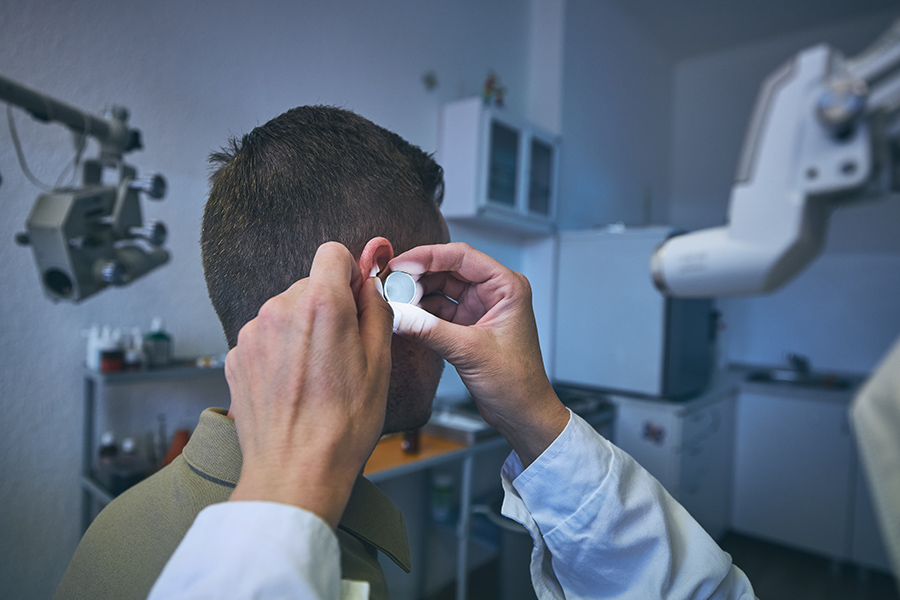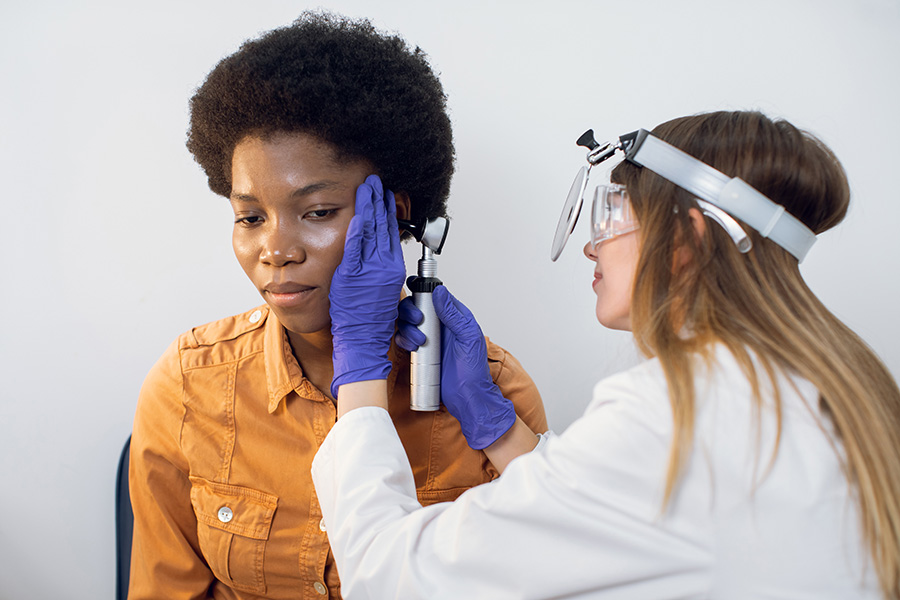Technological Advances: The Next Frontier in Pulsative Tinnitus Therapy
The landscape of tinnitus treatment is witnessing a significant shift thanks to technological advancements. One of the most promising areas is the development of advanced hearing aid devices equipped with tinnitus masking features. These devices play ambient sounds or white noise to help distract the brain from the tinnitus sounds. Another exciting development is the use of neuromodulation techniques. This involves using non-invasive methods like transcranial magnetic stimulation (TMS) to alter neural activity in the brain regions affected by tinnitus.
Furthermore, smartphone apps dedicated to tinnitus management are becoming increasingly sophisticated. These apps offer personalized sound therapy, meditation guides, and cognitive behavioral therapy (CBT) exercises, all aimed at reducing the perception of tinnitus. The integration of AI in these apps is also a significant step forward, as it allows for more personalized and adaptive treatment plans based on user feedback and progress.
Myths vs. Facts about Pulsative Tinnitus
Pulsative tinnitus, often misunderstood, is surrounded by numerous myths. One common misconception is that it’s just a minor annoyance and not a serious condition. In reality, it can significantly impact quality of life. Another myth is that there’s no treatment for pulsative tinnitus. However, recent advancements in technology and medicine have opened new avenues for effective treatment. It’s also falsely believed that only the elderly are affected. Pulsative tinnitus can affect individuals of any age, depending on various factors like exposure to loud noises or certain medical conditions.
Contrary to the belief that tinnitus is purely a hearing issue, it often involves neurological factors. The brain’s response to altered auditory signals plays a crucial role in the perception of tinnitus. Lastly, the myth that tinnitus is always constant is misleading. Many individuals experience fluctuating symptoms, influenced by factors like stress or health changes. Understanding these facts is vital for proper treatment and management of pulsative tinnitus.
FAQ Section What are the latest technological advancements in tinnitus treatment? Recent technological advancements include advanced hearing aids with tinnitus masking features and neuromodulation techniques like transcranial magnetic stimulation. Additionally, smartphone apps offering sound therapy and cognitive exercises are becoming more sophisticated, often incorporating AI for personalized treatment plans.
Are there any new medications being tested for tinnitus? Yes, several new medications are under clinical trials. These include drugs targeting neural pathways to reduce abnormal activity associated with tinnitus and medications aimed at protecting or repairing auditory cells. Supplements and vitamins to improve inner ear health are also being explored.
How do predictive models contribute to tinnitus treatment? Predictive models use machine learning algorithms to analyze patient data and identify individual patterns and triggers of tinnitus. This information helps in developing personalized treatment plans that are more effective for the specific needs and conditions of each patient.
What does personalized tinnitus treatment involve? Personalized tinnitus treatment involves creating a holistic plan that combines various therapies tailored to the individual’s needs. This can include sound therapy, psychological counseling, lifestyle modifications, and medication, all aimed at addressing both the symptoms and underlying causes of tinnitus.
Practical Tips and Tricks
- Stay Informed: Keep up-to-date with the latest research and advancements in tinnitus treatment.
- Consult Specialists: Seek advice from healthcare professionals who specialize in tinnitus treatment.
- Explore Multiple Therapies: Be open to trying a combination of treatments, including sound therapy, counseling, and medication.
- Prioritize Mental Health: Engage in activities that promote mental well-being, such as meditation or yoga, to help manage tinnitus-related stress.
- Monitor Your Progress: Keep a journal of your tinnitus symptoms and treatment responses to help your healthcare provider tailor your treatment plan.
Google Snippets Pulsative Tinnitus: A condition characterized by the perception of rhythmic sounds that are in sync with the heartbeat, often caused by changes in blood flow in the ear.
Neuromodulation Techniques: Non-invasive methods like transcranial magnetic stimulation used to alter neural activity in the brain regions affected by tinnitus.
Sound Therapy for Tinnitus: Involves using ambient sounds or white noise to distract the brain from tinnitus sounds, often integrated into advanced hearing aids or smartphone apps.
Quiz
What is a common myth about pulsative tinnitus?
- It’s just a minor annoyance.
- Answer: This is a myth. Pulsative tinnitus can significantly impact quality of life.
What role do predictive models play in tinnitus treatment?
- They predict weather patterns.
- They analyze patient data for personalized treatment.
- Answer: Predictive models analyze patient data to develop personalized treatment plans.
Which is not a practical tip for managing tinnitus?
- Staying informed about advancements.
- Ignoring the condition.
- Answer: Ignoring the condition is not advisable. Staying informed and proactive is key.
Did You Know? Pulsative tinnitus is not just a hearing issue but often involves neurological factors. The condition can affect individuals of any age, not just the elderly. With advancements in technology and medicine, effective treatment options are now available, debunking the myth that there’s no treatment for pulsative tinnitus.

Navigating Pulsatile Tinnitus in Seniors: Insights and Effective Management

Navigating Pulsatile Tinnitus in Adults: Insights and Treatment Strategies

Unveiling the Mystery of Pulsatile Tinnitus: A Comprehensive Guide for Adults

Comprehensive Approaches and Self-Care Techniques for Pulsatile Tinnitus Management

Recognizing Pulsatile Tinnitus: Early Symptoms and Identification Insights

Navigating the Diagnostic Path of Pulsatile Tinnitus: Insights into Imaging and Auditory Evaluations
References
- “Technological Advances in Tinnitus Treatment.” Tinnitus Guru. Discusses the latest technological innovations in tinnitus treatment, including advanced hearing aids and neuromodulation techniques.
- “Personalized Approaches to Tinnitus Management.” Tinnitus Guru. Provides insights into personalized treatment plans for tinnitus, emphasizing the importance of individualized care.



